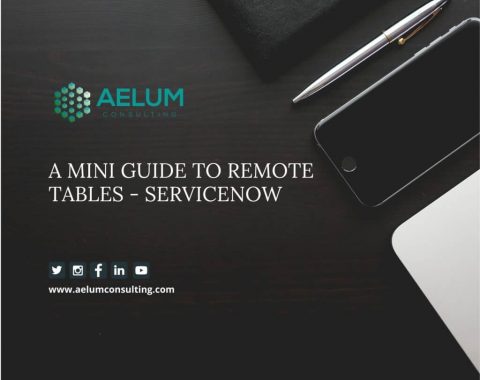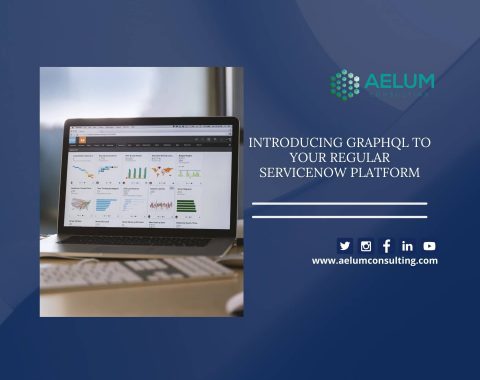Reduce cloud spend, manage hybrid cloud services, and minimize business risk by optimizing your operations to deliver high‑performance business services with ServiceNow Cloud Management.

An Introduction to Cloud Management
Cloud management refers to the processes, tools, and strategies used to monitor, control, and optimize cloud computing environments. It includes provisioning resources, monitoring performance, ensuring security and compliance, and managing costs. Organizations can focus on delivering business value instead of managing infrastructure to accumulate a centralized and automated way to manage and deploy cloud resources. Also, it helps to ensure that cloud services are secure, reliable, and scalable to meet changing business needs.
Cloud deployments can be categorized into the following three models:
Public Cloud
Owned and operated by a third-party cloud service provider and is available to the public over the internet. They are designed for multi-tenancy, meaning many customers can use the same shared infrastructure to run their applications and services.
Private Cloud
Dedicated to a single organization, typically hosted on-premises or at a third-party data centre. They are designed to provide a higher level of control, security, and customization than public clouds. Also, they are often used by organizations with specific security, compliance, or performance requirements.
Hybrid Cloud
Combination of public and private clouds that are used simultaneously to meet the needs of an organization. It enables organizations to take advantage of the cost savings and scalability of public clouds. Still, they maintain private clouds’ control, security, and customization.
How Does Cloud Management Work?
The following are the steps involved in cloud management:
Resource Provisioning:
Allocate and configure required cloud resources to support applications and services. For example, virtual machines, storage, and network components.
Monitoring and Management
Keep track of resource usage, performance, and availability. Also, it can help in taking action when issues arise, such as automatically scaling resources to meet demand.
Security and Compliance
Ensures that cloud resources are configured and used following security policies and regulatory requirements.
Cost Management
Monitor and control cloud costs. Also, you can track usage and charges and optimize resource utilization to minimize waste.
Deployment Automation
Automate the deployment and management of cloud resources. It includes creating and managing virtual machines, storage, and network components.
Backup and Disaster Recovery
Involves creating backups of data and applications and developing a plan for restoring them in case of a disaster, such as a natural disaster, cyber-attack, or accidental data loss.
Cloud Management Features
Cloud services creation
Provides a personalized services Catalog to users to order services, make requests, or check on incidents.
Operational scheduling
Schedule daily operations on assets while maintaining close-ended auditing and change management with ServiceNow cloud management.
Cloud resource governance
Manage and control discovered and provisioned assets, with the CMDB recording all related resources.
Standard Catalog
Get consistent, secure, and auditable services across multi-clouds on various governance.
How Can Aelum Consulting be the Best Support for ServiceNow Cloud Management?
Aelum Consulting is a Premier ServiceNow Partner with expertise in IT Service Management, including cloud management. Here are some ways we will support organizations with ServiceNow cloud management-
Implementation support
We can help organizations with the implementation of ServiceNow Cloud Management, including module configuration and customization, integration with other tools, and testing.
Training and documentation
We can provide training and documentation to help organizations understand how to use ServiceNow Cloud Management effectively. It can include training sessions for IT staff and end-users, user manuals, FAQs, and other documentation.
Optimization and process improvement
We can help organizations optimize their cloud management processes, improve governance and compliance, and streamline cloud service delivery. It can involve identifying areas for improvement, creating an action plan, and implementing changes to improve performance.
Ongoing support and maintenance
We can provide ongoing support and maintenance for ServiceNow Cloud Management, including troubleshooting, software updates, and system monitoring to ensure optimal performance and security.
Cloud cost optimization
We can help organizations optimize their cloud costs, including cost forecasting, budget tracking, and cost optimization strategies to help organizations save money on cloud services.
Cloud service management
We can help organizations manage their cloud services more effectively, including cloud service request and approval workflows, service level management, and reporting and analytics to help organizations make informed decisions about cloud service usage.
Advantages of cloud management!
Cloud management provides several benefits, including-
Reduces Cloud Sprawl
The issue called cloud sprawl is increasing widely. So, ServiceNow cloud management can help identify the best-suited applications for off-premises, effectively reducing the number of workloads and data moved into the cloud.
More-Effective Analysis
Cloud management takes responsibility for the full process, from collecting to analyzing data from internal and external cloud applications. This way, the administrators get the information and insights for optimizing cloud resource usage with a standard view.
Improved Strategy
Cloud management provides clear visibility and insights into user actions and how workloads are processed in the cloud. Businesses can address demand without provisioning larger private-cloud infrastructures with built-in instance automation.
Complete Policy Compliance
Users must adhere to established cloud-usage policies and guidelines at all levels to avoid any data risk. Administrators can quickly review cloud usage and identify non-compliant actions with the help of cloud management.
Cost Savings
Cloud management enables organizations to optimize their cloud spending by monitoring resource utilization and controlling costs, such as reducing overprovisioning or identifying and eliminating idle or underutilized resources.
Scalability
Cloud management makes it easier to scale resources as needed, whether adding or removing resources in response to changes in demand or deploying new applications and services.
Improved Agility
With cloud management, organizations can more easily manage and deploy cloud resources, freeing up time and resources devoted to delivering business value instead of managing infrastructure.
Enhanced Security
Cloud management helps to ensure that cloud resources are secure and in compliance with security policies and regulatory requirements, reducing the risk of data breaches and other security incidents.
Increased Reliability
Cloud management helps to ensure that cloud resources are available and performing optimally, reducing downtime and improving the overall reliability of cloud services.
Better Visibility
Cloud management provides organizations with visibility into the usage, performance, and cost of cloud resources, enabling them to make more informed decisions about how to manage and optimize their cloud environments.
Frequently Asked Questions
A cloud management platform (CMP) is a software solution that provides a centralized and automated way to manage and deploy cloud resources across multiple cloud providers or environments. It automates many manual tasks in cloud management, such as provisioning, monitoring, and scaling resources, and provides a unified interface for managing cloud resources.
So, a CMP provides a centralized and automated way to manage and deploy cloud resources, enabling organizations to focus on delivering business value instead of managing infrastructure. Organizations can use a CMP to improve their cloud deployments’ efficiency, security, and reliability.
Cloud computing refers to delivering computing resources (servers, storage, databases, networking, software, analytics, and intelligence) over the Internet to offer faster innovation, flexible resources, and economies of scale. Cloud management refers to the administration and management of these cloud-based resources.
The three main types of cloud computing services are Infrastructure as a Service (IaaS), Platform as a Service (PaaS), and Software as a Service (SaaS).
Some of cloud management challenges include security, compliance, vendor lock-in, and the need for specialized skills and resources.
The key components of cloud management include provisioning and deployment, monitoring and management, cost optimization, security and compliance, and service management.
Multi-cloud management is managing resources and services across multiple cloud providers and platforms.
DevOps is a set of practices that combine software development and IT operations to shorten the development life cycle and provide continuous delivery and integration. DevOps plays a vital role in cloud management by enabling organizations to manage their cloud resources and services more agile and efficient.
Our Clients

























































